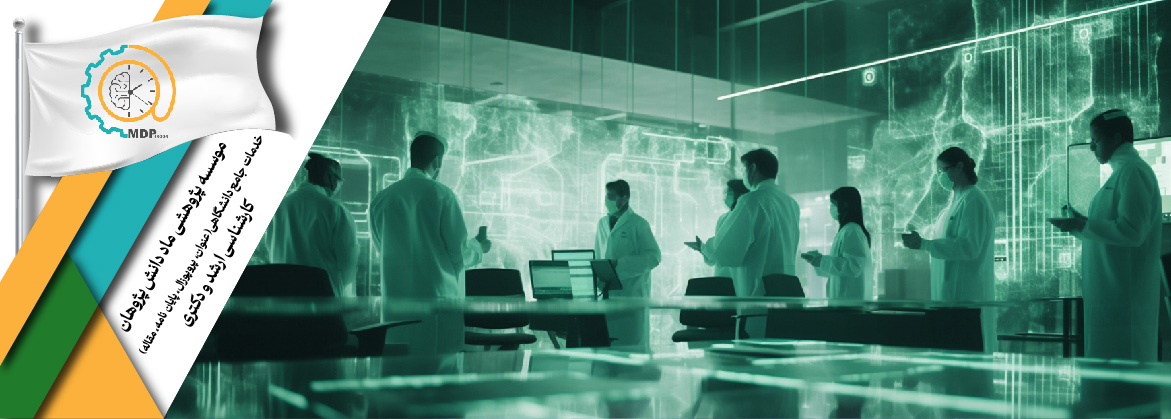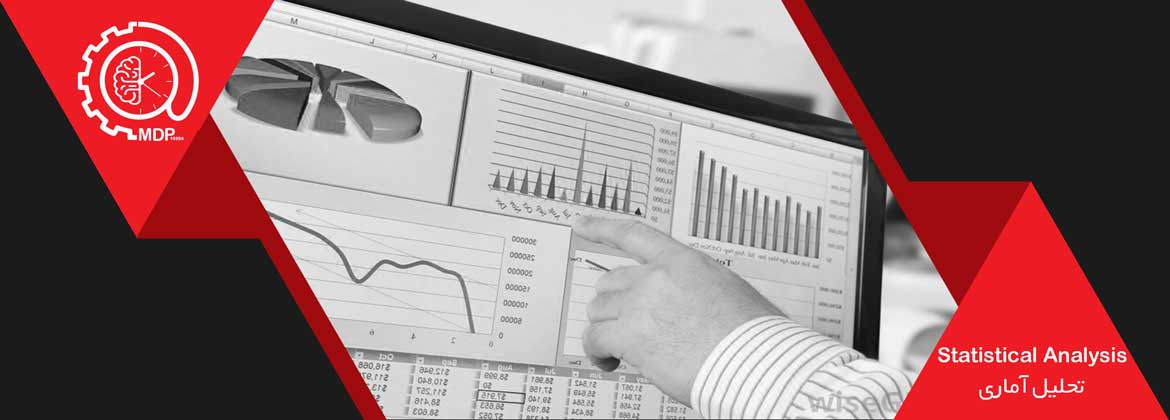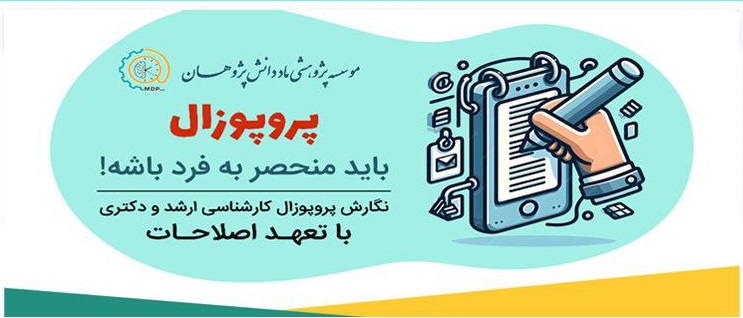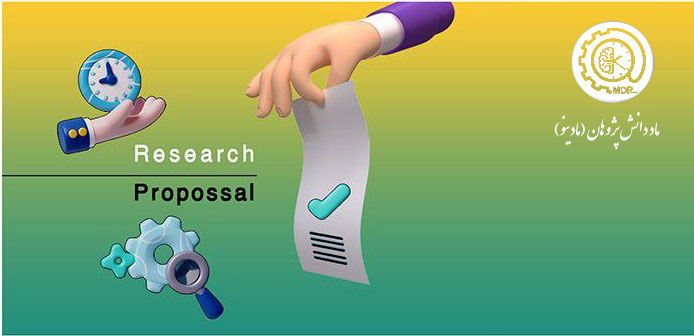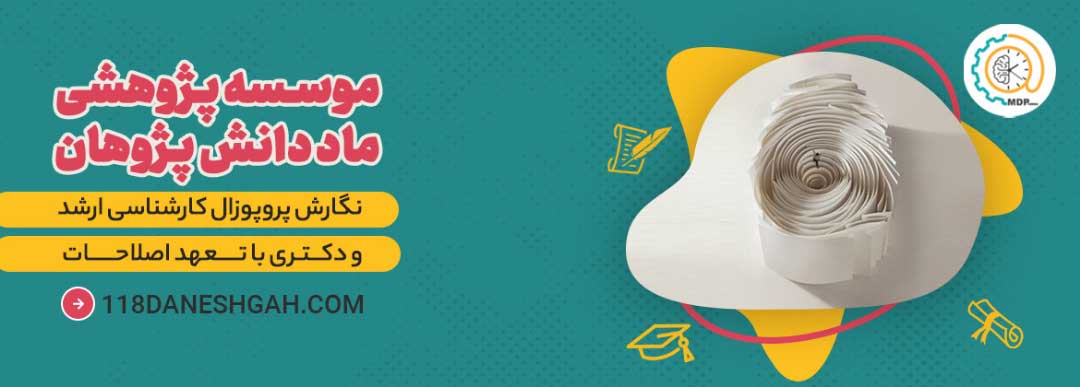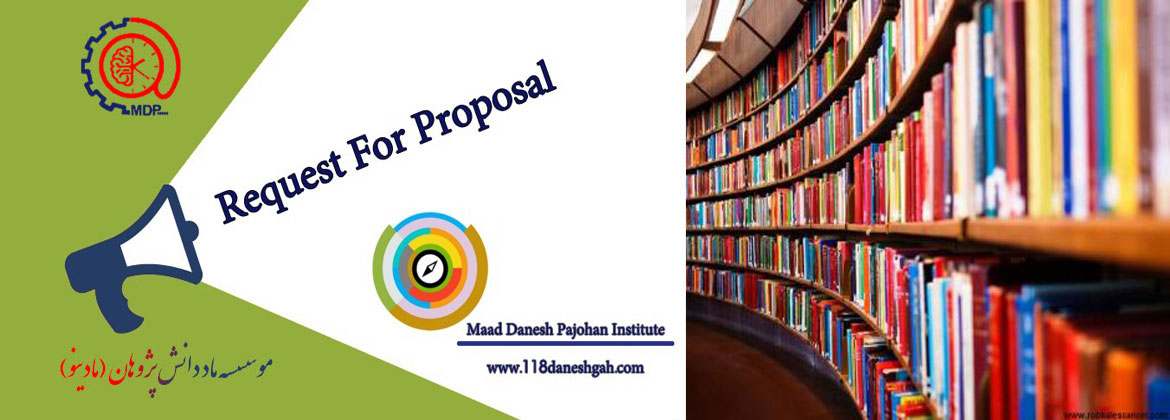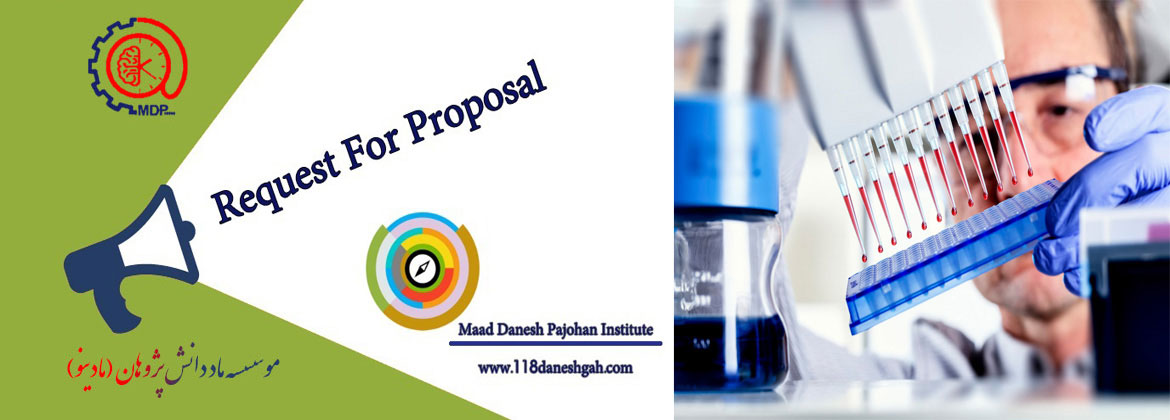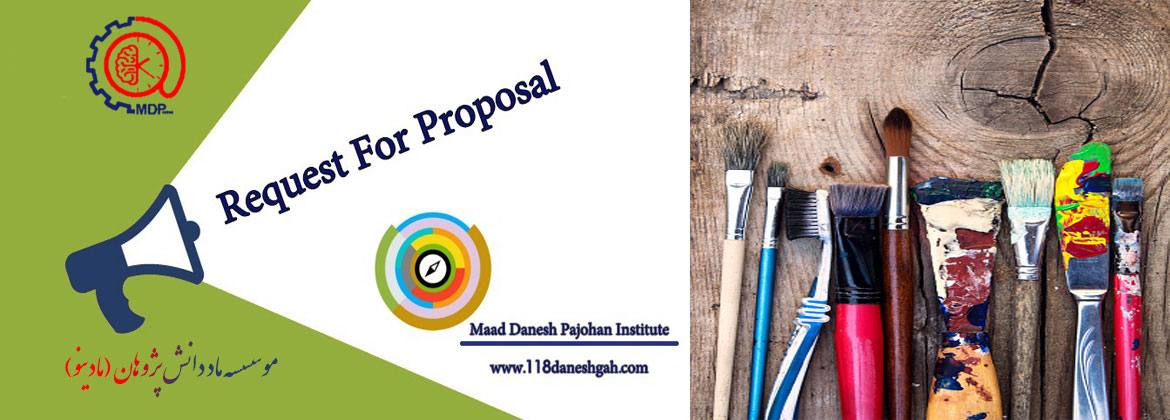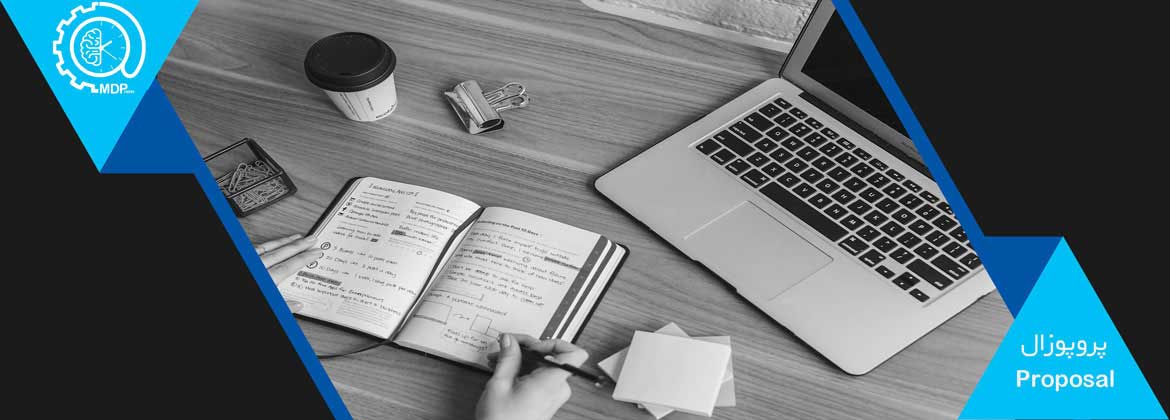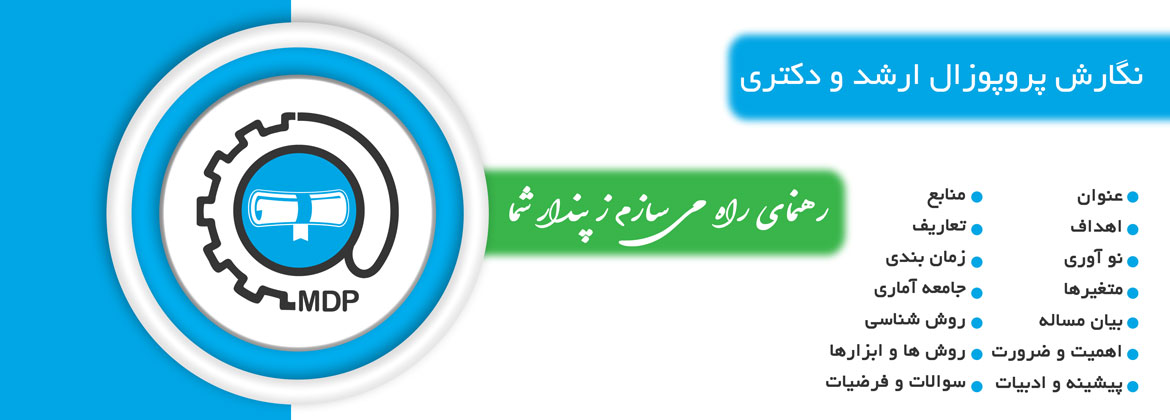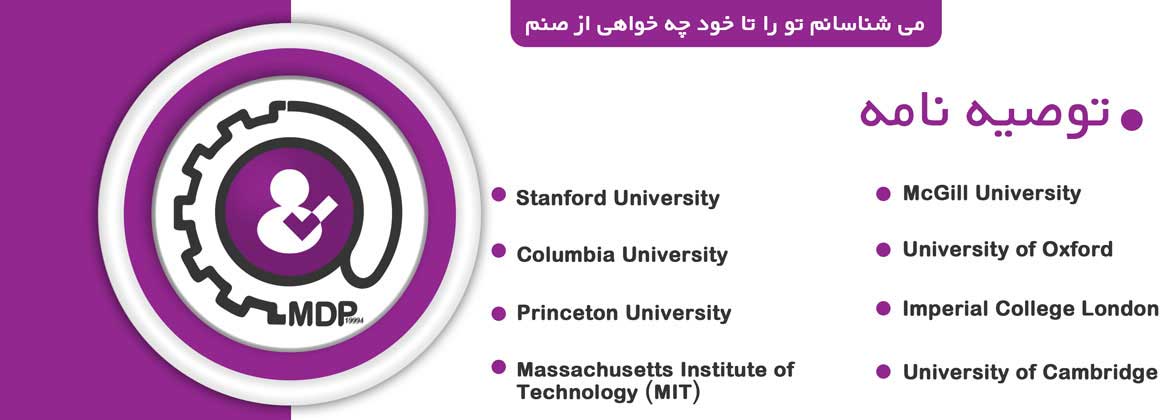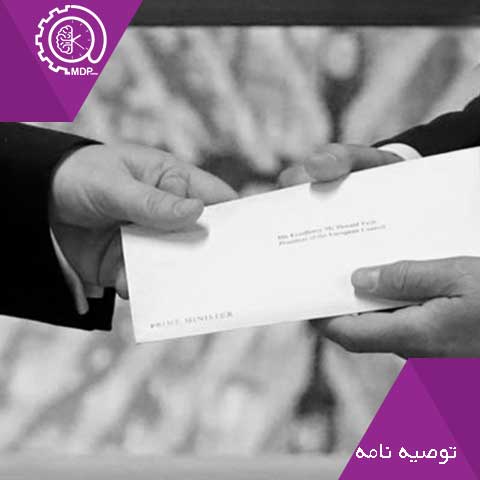بیزینس پرو نیوز
کانکت نیوز
رضایت نیوز
بیانیه اعتبار
بیانیه اعتبار و جایگاه علمی مؤسسه ماد دانشپژوهان مؤسسه «ماد دانشپژوهان» با بیش از ۲۳ سال سابقه مستمر و حرفهای در حوزه پژوهشهای دانشگاهی، بهعنوان یکی از مجموعههای معتبر و قابل اتکا در همراهی علمی دانشجویان تحصیلات تکمیلی در ایران و خارج از کشور... ادامه مطلب ..
بیانیه اعتبار و جایگاه علمی مؤسسه ماد دانشپژوهان مؤسسه «ماد دانشپژوهان» با بیش از ۲۳ سال سابقه مستمر و حرفهای در حوزه پژوهشهای دانشگاهی، بهعنوان یکی از مجموعههای معتبر و قابل اتکا در همراهی علمی دانشجویان تحصیلات تکمیلی در ایران و خارج از کشور... ادامه مطلب ..
پرسش از هوش مصنوعی در مورد ماد دانش پژوهان
در این مطلب به پرسش از هوش مصنوعی در مورد ماد دانش پژوهان پرداخته شده است. پرسش یکی از کاربران موسسه از هوش مصنوعی و جواب آن در مورد ماد دانش پژوهان بررسی شده است. پرسش از هوش مصنوعی در مورد ماد دانش پژوهان مشورت با CHAT GPT در مورد موسسه ماد دانش پژوهان سؤال بسیار خوبی... ادامه مطلب ..
در این مطلب به پرسش از هوش مصنوعی در مورد ماد دانش پژوهان پرداخته شده است. پرسش یکی از کاربران موسسه از هوش مصنوعی و جواب آن در مورد ماد دانش پژوهان بررسی شده است. پرسش از هوش مصنوعی در مورد ماد دانش پژوهان مشورت با CHAT GPT در مورد موسسه ماد دانش پژوهان سؤال بسیار خوبی... ادامه مطلب ..
رضایت دانشجو - کد 14334
کد 14334 - Arman Sarkissian ارمنستان : MSc International Relations : July 2023 نظر: Theoretical framework was extremely strong and coherent.thanks a lot ادامه مطلب ..
کد 14334 - Arman Sarkissian ارمنستان : MSc International Relations : July 2023 نظر: Theoretical framework was extremely strong and coherent.thanks a lot ادامه مطلب ..
رضایت دانشجو 12921
کد 12921- Zahra Karimi ایران – شیراز دکتری علوم تربیتی آبان ۱۴۰۰ نظر: بازنویسی فصل دوم پایاننامه بهقدری دقیق بود که اساتید داور کاملاً راضی بودند.خدا خیرتون بده کاش همه کارشون رو درست انجام بدن جقدر سرمایه اجتماعی ایجاد میکنه اعتماد اعتماد اعتماد واقعا من به... ادامه مطلب ..
کد 12921- Zahra Karimi ایران – شیراز دکتری علوم تربیتی آبان ۱۴۰۰ نظر: بازنویسی فصل دوم پایاننامه بهقدری دقیق بود که اساتید داور کاملاً راضی بودند.خدا خیرتون بده کاش همه کارشون رو درست انجام بدن جقدر سرمایه اجتماعی ایجاد میکنه اعتماد اعتماد اعتماد واقعا من به... ادامه مطلب ..
رضایت دانشجو کد 11090
کد 11090 - Fatemeh Jalali ایران – کرج ارشد حقوق بینالملل خرداد ۱۴۰۲ نظر: نگارش پایاننامه با رعایت کامل اصول آکادمیک و منابع معتبر انجام شد. کاملاً راضی هستم.به قول سعدی سعدیا مرد نکو نام نمیرد هرگز در حق من نکویی فرمودید مرسی ... ادامه مطلب ..
کد 11090 - Fatemeh Jalali ایران – کرج ارشد حقوق بینالملل خرداد ۱۴۰۲ نظر: نگارش پایاننامه با رعایت کامل اصول آکادمیک و منابع معتبر انجام شد. کاملاً راضی هستم.به قول سعدی سعدیا مرد نکو نام نمیرد هرگز در حق من نکویی فرمودید مرسی ... ادامه مطلب ..
رضایت دانشجو کد 12978
کد 12978 - Reza Norouzi ایران – تبریز ارشد مهندسی برق اسفند ۱۴۰۱ نظر: مدلسازی متلب و تحلیل نتایج دقیقاً مطابق استاندارد ژورنالهای بینالمللی انجام شد.فکر نمیکردم به این خوبی بشه آقا واقعا ممنونم ازتون خیلی خوب شد منم جبران کنم یک روزی یه جایی ادامه مطلب ..
کد 12978 - Reza Norouzi ایران – تبریز ارشد مهندسی برق اسفند ۱۴۰۱ نظر: مدلسازی متلب و تحلیل نتایج دقیقاً مطابق استاندارد ژورنالهای بینالمللی انجام شد.فکر نمیکردم به این خوبی بشه آقا واقعا ممنونم ازتون خیلی خوب شد منم جبران کنم یک روزی یه جایی ادامه مطلب ..
رضایت دانشجو کد 13254
کد 13254 - علی رضایی ایران – مشهد ارشد روانشناسی بالینی تیر ۱۴۰۲ نظر: تحلیل آماری SPSS و تفسیر نتایج بسیار دقیق انجام شد. واقعاً خیالم از بابت کیفیت علمی راحت بود.قلبا موگم دستتون درد نره به قول ما مشهدیها اینجا دعاتون مکنوم ادامه مطلب ..
کد 13254 - علی رضایی ایران – مشهد ارشد روانشناسی بالینی تیر ۱۴۰۲ نظر: تحلیل آماری SPSS و تفسیر نتایج بسیار دقیق انجام شد. واقعاً خیالم از بابت کیفیت علمی راحت بود.قلبا موگم دستتون درد نره به قول ما مشهدیها اینجا دعاتون مکنوم ادامه مطلب ..
رضایت دانشجو کد 13459
Sara Mohammadiایران – اصفهان دکتری مدیریت بازرگانیشروع همکاری: مهر ۱۴۰۱نظر:همکاری با این مجموعه باعث شد مقاله من در ژورنال Q1 اسکوپوس پذیرفته شود. پاسخ به داوران کاملاً حرفهای و دقیق بود.دوستون دارم واقعا و ممنونتونم مسیر زندگیم تغییر کرد ادامه مطلب ..
Sara Mohammadiایران – اصفهان دکتری مدیریت بازرگانیشروع همکاری: مهر ۱۴۰۱نظر:همکاری با این مجموعه باعث شد مقاله من در ژورنال Q1 اسکوپوس پذیرفته شود. پاسخ به داوران کاملاً حرفهای و دقیق بود.دوستون دارم واقعا و ممنونتونم مسیر زندگیم تغییر کرد ادامه مطلب ..
رضایت دانشجو کد 15465
محمدرضا احمدی ایران – تهران کارشناسی ارشد مهندسی عمران - سازه دانشگاه ....شروع همکاری: فروردین ۱۴۰۲نظر:از ابتدای نگارش پروپوزال تا دفاع پایاننامه، تیم کاملاً حرفهای و متعهد همراه من بودند. دقت علمی و زمانبندی عالی باعث شد با نمره عالی فارغالتحصیل شوم. ادامه مطلب ..
محمدرضا احمدی ایران – تهران کارشناسی ارشد مهندسی عمران - سازه دانشگاه ....شروع همکاری: فروردین ۱۴۰۲نظر:از ابتدای نگارش پروپوزال تا دفاع پایاننامه، تیم کاملاً حرفهای و متعهد همراه من بودند. دقت علمی و زمانبندی عالی باعث شد با نمره عالی فارغالتحصیل شوم. ادامه مطلب ..
کد 10591
Youssef maali استرالیا MSc Mechanical Engineering : February 2022 نظر: Simulation results were accurate and well-documented. ادامه مطلب ..
Youssef maali استرالیا MSc Mechanical Engineering : February 2022 نظر: Simulation results were accurate and well-documented. ادامه مطلب ..
کد 11830
Ali Akbar Rahimi ایران – اهواز دکتری مهندسی شیمی دی ۱۴۰۰ نظر: همراهی تیم تا مرحله سابمیت مقاله ISI واقعاً ارزشمند بود.بعدشم کاور لتر خوب و پاسخ به کامنتها محشر بود فکر کردم ریچکتم ولی در کمال ناباوری البته با چند بار زحمت و پاسخ مقلم قبول و اکسپت شد باریکلا بهتون واقعا خیلی... ادامه مطلب ..
Ali Akbar Rahimi ایران – اهواز دکتری مهندسی شیمی دی ۱۴۰۰ نظر: همراهی تیم تا مرحله سابمیت مقاله ISI واقعاً ارزشمند بود.بعدشم کاور لتر خوب و پاسخ به کامنتها محشر بود فکر کردم ریچکتم ولی در کمال ناباوری البته با چند بار زحمت و پاسخ مقلم قبول و اکسپت شد باریکلا بهتون واقعا خیلی... ادامه مطلب ..
کد 12117
مهندسی برق – قدرت | تهران برای انجام پروپوزال و پایاننامه ارشد مهندسی برق (گرایش قدرت) با این مجموعه آشنا شدم. از همان ابتدا انتخاب موضوع دقیق، جدید و کاملاً متناسب با علایق پژوهشی من انجام شد. پروپوزال در اولین ارسال تأیید شد و در مرحله پایاننامه نیز تحلیلها،... ادامه مطلب ..
مهندسی برق – قدرت | تهران برای انجام پروپوزال و پایاننامه ارشد مهندسی برق (گرایش قدرت) با این مجموعه آشنا شدم. از همان ابتدا انتخاب موضوع دقیق، جدید و کاملاً متناسب با علایق پژوهشی من انجام شد. پروپوزال در اولین ارسال تأیید شد و در مرحله پایاننامه نیز تحلیلها،... ادامه مطلب ..
کد 12236
Amir Hossein Ghasemi ایران – قم دکتری فلسفه شروع همکاری: مهر ۱۳۹۹ نظر: تحلیلهای فلسفی بسیار عمیق و دقیق بودند و ادبیات متن کاملاً دانشگاهی بود.من فکر نمیکردم بتونن اینطور بنویسن ولی سربلند شدم خداتون خیر بده ادامه مطلب ..
Amir Hossein Ghasemi ایران – قم دکتری فلسفه شروع همکاری: مهر ۱۳۹۹ نظر: تحلیلهای فلسفی بسیار عمیق و دقیق بودند و ادبیات متن کاملاً دانشگاهی بود.من فکر نمیکردم بتونن اینطور بنویسن ولی سربلند شدم خداتون خیر بده ادامه مطلب ..
کد 12877
ایلینوی – دکتری مدیریت فناوری Emily Carter | ایالت: Illinois من دانشجوی دکتری مدیریت فناوری در ایالت ایلینوی هستم و برای توسعه چارچوب نظری و روش تحقیق رسالهام از این مجموعه کمک گرفتم. تیم پژوهشی توانست ادبیات میانرشتهای مدیریت و فناوری را بهصورت منسجم در پروپوزال... ادامه مطلب ..
ایلینوی – دکتری مدیریت فناوری Emily Carter | ایالت: Illinois من دانشجوی دکتری مدیریت فناوری در ایالت ایلینوی هستم و برای توسعه چارچوب نظری و روش تحقیق رسالهام از این مجموعه کمک گرفتم. تیم پژوهشی توانست ادبیات میانرشتهای مدیریت و فناوری را بهصورت منسجم در پروپوزال... ادامه مطلب ..
کد 12884
مهندسی مکانیک – طراحی کاربردی | تهران برای پایاننامه کارشناسی ارشد مهندسی مکانیک (طراحی کاربردی) از این مجموعه کمک گرفتم. از مرحله انتخاب موضوع تا نگارش پروپوزال و تکمیل پایاننامه، همه چیز کاملاً برنامهریزیشده و منظم پیش رفت. اصلاحات استاد راهنما و داوران... ادامه مطلب ..
مهندسی مکانیک – طراحی کاربردی | تهران برای پایاننامه کارشناسی ارشد مهندسی مکانیک (طراحی کاربردی) از این مجموعه کمک گرفتم. از مرحله انتخاب موضوع تا نگارش پروپوزال و تکمیل پایاننامه، همه چیز کاملاً برنامهریزیشده و منظم پیش رفت. اصلاحات استاد راهنما و داوران... ادامه مطلب ..
کد 13502
کالیفرنیا – دکتری مدیریت استراتژیک من دانشجوی دکتری مدیریت استراتژیک در یکی از دانشگاههای ایالت کالیفرنیا هستم و در مرحله تدوین پروپوزال رساله با این تیم همکاری داشتم. مسئله پژوهش بهصورت کاملاً دقیق، مبتنی بر ادبیات روز و همسو با علایق استاد راهنما طراحی شد.... ادامه مطلب ..
کالیفرنیا – دکتری مدیریت استراتژیک من دانشجوی دکتری مدیریت استراتژیک در یکی از دانشگاههای ایالت کالیفرنیا هستم و در مرحله تدوین پروپوزال رساله با این تیم همکاری داشتم. مسئله پژوهش بهصورت کاملاً دقیق، مبتنی بر ادبیات روز و همسو با علایق استاد راهنما طراحی شد.... ادامه مطلب ..
کد 14520
Parisa Amini آلمان PhD Education January 2021 نظر: The literature review was comprehensive and well-structured.من توی غربت واقعا یک پشتوانه عالی پیدا کردم و اون همین مجموعه بود ته دلم قرص شد واقعا بی نظیرن انگار توی آلمان خدمات گرفته باشمدقیق و منطقیین و خیلی درستند ادامه مطلب ..
Parisa Amini آلمان PhD Education January 2021 نظر: The literature review was comprehensive and well-structured.من توی غربت واقعا یک پشتوانه عالی پیدا کردم و اون همین مجموعه بود ته دلم قرص شد واقعا بی نظیرن انگار توی آلمان خدمات گرفته باشمدقیق و منطقیین و خیلی درستند ادامه مطلب ..
کد 15385-شروع همکاری 30-10-1398 (ادامه دارد)
دانیال دکترای بیزینس از فرانسه تجربه من با این تیم، خیلی فراتر از یه همکاری ساده و خشکِ دانشجویی بود. راستش چیزی که همون اول خیالم رو راحت کرد، تسلط عجیبشون روی نقشه راه پژوهش بود؛ اینکه یکی باشه که دقیقاً بدونه چه چارچوب و روشی به دردت میخوره، انگار وسط مه غلیظ برات چراغ... ادامه مطلب ..
دانیال دکترای بیزینس از فرانسه تجربه من با این تیم، خیلی فراتر از یه همکاری ساده و خشکِ دانشجویی بود. راستش چیزی که همون اول خیالم رو راحت کرد، تسلط عجیبشون روی نقشه راه پژوهش بود؛ اینکه یکی باشه که دقیقاً بدونه چه چارچوب و روشی به دردت میخوره، انگار وسط مه غلیظ برات چراغ... ادامه مطلب ..
کد 15889
تگزاس – دکتری مدیریت کسبوکار (DBA) من دانشجوی دکتری مدیریت کسبوکار (DBA) در ایالت تگزاس هستم و از مرحله نهاییسازی موضوع تا تکمیل پروپوزال رساله با این تیم همکاری داشتم. موضوع پژوهش کاملاً کاربردی و مبتنی بر مسائل واقعی سازمانها طراحی شد و همین موضوع نظر مثبت کمیته... ادامه مطلب ..
تگزاس – دکتری مدیریت کسبوکار (DBA) من دانشجوی دکتری مدیریت کسبوکار (DBA) در ایالت تگزاس هستم و از مرحله نهاییسازی موضوع تا تکمیل پروپوزال رساله با این تیم همکاری داشتم. موضوع پژوهش کاملاً کاربردی و مبتنی بر مسائل واقعی سازمانها طراحی شد و همین موضوع نظر مثبت کمیته... ادامه مطلب ..
کد 16005
Noor Al-Hassan/ امارات/ / PhD Business Administration شروع همکاری May 2020 نظر: Professional academic writing with excellent reviewer response.very good ادامه مطلب ..
Noor Al-Hassan/ امارات/ / PhD Business Administration شروع همکاری May 2020 نظر: Professional academic writing with excellent reviewer response.very good ادامه مطلب ..
کد 16443
مهندسی عمران – سازه | تهران بهدلیل کمبود وقت و حساسیت بالای پایاننامه، انجام موضوع، پروپوزال و نگارش پایاننامه ارشد مهندسی عمران را به این تیم سپردم. انتخاب موضوع کاملاً مطابق آییننامه دانشکده بود و پروپوزال بدون رفتوبرگشت تأیید شد. در زمان نگارش... ادامه مطلب ..
مهندسی عمران – سازه | تهران بهدلیل کمبود وقت و حساسیت بالای پایاننامه، انجام موضوع، پروپوزال و نگارش پایاننامه ارشد مهندسی عمران را به این تیم سپردم. انتخاب موضوع کاملاً مطابق آییننامه دانشکده بود و پروپوزال بدون رفتوبرگشت تأیید شد. در زمان نگارش... ادامه مطلب ..
کد 16556
Anna Kowalska لهستان PhD Management : September 2020 نظر: The revision process for Scopus journal was handled perfectly.خیلی خوب هستند و ما را خیلی راضی فرمودند این انسانهای خوب و خیلی خوب و موسسه خوبشان ادامه مطلب ..
Anna Kowalska لهستان PhD Management : September 2020 نظر: The revision process for Scopus journal was handled perfectly.خیلی خوب هستند و ما را خیلی راضی فرمودند این انسانهای خوب و خیلی خوب و موسسه خوبشان ادامه مطلب ..
کد 17012
Maryam Ebrahimi ایران – یزد ارشد حسابداری شروع همکاری: مرداد ۱۴۰۲ نظر: تحلیل مالی و نگارش فصل چهارم بسیار دقیق و حرفهای انجام شد. به همین خاطر کل کلارمو دادم دوباره بررسی کردن و یک کار عالی شد سخت استادمو راضی کردم کار خودمه خیلی بهم شک کرد ولی با کمک و مشاور عالی که... ادامه مطلب ..
Maryam Ebrahimi ایران – یزد ارشد حسابداری شروع همکاری: مرداد ۱۴۰۲ نظر: تحلیل مالی و نگارش فصل چهارم بسیار دقیق و حرفهای انجام شد. به همین خاطر کل کلارمو دادم دوباره بررسی کردن و یک کار عالی شد سخت استادمو راضی کردم کار خودمه خیلی بهم شک کرد ولی با کمک و مشاور عالی که... ادامه مطلب ..
کد 17478
مهندسی صنایع – دانشگاه تهران من دانشجوی کارشناسی ارشد مهندسی صنایع از دانشگاه تهران هستم و از مرحله انتخاب موضوع تا نگارش کامل پروپوزال و پایاننامه با این مجموعه همکاری داشتم. موضوع کاملاً کاربردی و منطبق با نظر استاد راهنما انتخاب شد و پروپوزال بدون اصلاح اساسی تأیید... ادامه مطلب ..
مهندسی صنایع – دانشگاه تهران من دانشجوی کارشناسی ارشد مهندسی صنایع از دانشگاه تهران هستم و از مرحله انتخاب موضوع تا نگارش کامل پروپوزال و پایاننامه با این مجموعه همکاری داشتم. موضوع کاملاً کاربردی و منطبق با نظر استاد راهنما انتخاب شد و پروپوزال بدون اصلاح اساسی تأیید... ادامه مطلب ..
کد 17655
نیویورک – دکتری مدیریت منابع انسانی من دانشجوی دکتری مدیریت منابع انسانی در ایالت نیویورک هستم و برای بازطراحی پروپوزال رسالهام از خدمات این مجموعه استفاده کردم. پروپوزال اولیه من چند بار از سوی کمیته رد شده بود، اما پس از بازنگری ساختار نظری، متغیرها و روش تحقیق، طرح... ادامه مطلب ..
نیویورک – دکتری مدیریت منابع انسانی من دانشجوی دکتری مدیریت منابع انسانی در ایالت نیویورک هستم و برای بازطراحی پروپوزال رسالهام از خدمات این مجموعه استفاده کردم. پروپوزال اولیه من چند بار از سوی کمیته رد شده بود، اما پس از بازنگری ساختار نظری، متغیرها و روش تحقیق، طرح... ادامه مطلب ..
کد 17761
مهندسی کامپیوتر – نرمافزار | تهران من دانشجوی ارشد مهندسی کامپیوتر از تهران هستم و از خدمات این مجموعه برای انتخاب موضوع، نگارش پروپوزال و پایاننامه استفاده کردم. موضوع پیشنهادی بسیار بهروز و کاربردی بود و استاد راهنما کاملاً از آن استقبال کرد. پروپوزال سریع... ادامه مطلب ..
مهندسی کامپیوتر – نرمافزار | تهران من دانشجوی ارشد مهندسی کامپیوتر از تهران هستم و از خدمات این مجموعه برای انتخاب موضوع، نگارش پروپوزال و پایاننامه استفاده کردم. موضوع پیشنهادی بسیار بهروز و کاربردی بود و استاد راهنما کاملاً از آن استقبال کرد. پروپوزال سریع... ادامه مطلب ..
کد 17766
Hassan El-Sayed مصر Master of Public Health : June 2022 نظر: Statistical analysis and interpretation were outstanding.من بدین وسیله از سیستم با انظباط و ارزشمند این موسسه کمال تشکر را میکنم و برایشان آرزوی توفیقات روز افزون میکنم ادامه مطلب ..
Hassan El-Sayed مصر Master of Public Health : June 2022 نظر: Statistical analysis and interpretation were outstanding.من بدین وسیله از سیستم با انظباط و ارزشمند این موسسه کمال تشکر را میکنم و برایشان آرزوی توفیقات روز افزون میکنم ادامه مطلب ..
کد 17836
نام و نام خانوادگی حقیقی رشته و مقطع تحصیلی دکترای زبان شرح درخواست شما(لطفا دقیق و واضح) پروژه تحقیقاتی زبان خارجی تیم مادپژوهان بسیار متعهد و مسئولیت پذیر هستند بسیار خوش قول و منعطف ، قدردان زحمات مجموعه هستم ادامه مطلب ..
نام و نام خانوادگی حقیقی رشته و مقطع تحصیلی دکترای زبان شرح درخواست شما(لطفا دقیق و واضح) پروژه تحقیقاتی زبان خارجی تیم مادپژوهان بسیار متعهد و مسئولیت پذیر هستند بسیار خوش قول و منعطف ، قدردان زحمات مجموعه هستم ادامه مطلب ..
کد 18000
Leyla Demir ترکیه PhD Sociology : October 2024 نظر: Very professional and ethical collaboration. Highly recommended.کارمو به زبان انگلیسی تحویل گرفتم واقعا خیلی خوب بود من زبانم عالیه ولی این موسسه درخشانن تخصص و پشتیبانی رو با هم دارند کمتر جایی هر دو با هم هست واقعا هم کاردرست انجام میدن و هم درست کارن به قول خودشون... ادامه مطلب ..
Leyla Demir ترکیه PhD Sociology : October 2024 نظر: Very professional and ethical collaboration. Highly recommended.کارمو به زبان انگلیسی تحویل گرفتم واقعا خیلی خوب بود من زبانم عالیه ولی این موسسه درخشانن تخصص و پشتیبانی رو با هم دارند کمتر جایی هر دو با هم هست واقعا هم کاردرست انجام میدن و هم درست کارن به قول خودشون... ادامه مطلب ..
کد 18201
Ahmad Al-Farsi / عمان / MSc Civil Engineering شروع همکاری/March 2022 نظر: Excellent academic support. My thesis was approved without any major revisions.من تو عمان سرگردون بودم جه کنم انگار از آسمون برام نازل شدید واقعا حرف ندارید و بیار عمیق و دقیق گوش میدید و مشورت میدیدو واقعا ادما رو از گمراهی در میارید صادقانه فکرشم نمیکردم... ادامه مطلب ..
Ahmad Al-Farsi / عمان / MSc Civil Engineering شروع همکاری/March 2022 نظر: Excellent academic support. My thesis was approved without any major revisions.من تو عمان سرگردون بودم جه کنم انگار از آسمون برام نازل شدید واقعا حرف ندارید و بیار عمیق و دقیق گوش میدید و مشورت میدیدو واقعا ادما رو از گمراهی در میارید صادقانه فکرشم نمیکردم... ادامه مطلب ..
کد 9012
Mohammad Rahman UK MSc Computer Science April 2023 نظر: Code validation and methodology explanation were very clear.من باورم نشد توی ایران چنین افرادی و اینجور عالی و گود کار کنن موندم چی بگمخوب انجام دادن خوب پشتیبان شدن و همچنین من میگم بهترینن واقعا به همه میگمشون ادامه مطلب ..
Mohammad Rahman UK MSc Computer Science April 2023 نظر: Code validation and methodology explanation were very clear.من باورم نشد توی ایران چنین افرادی و اینجور عالی و گود کار کنن موندم چی بگمخوب انجام دادن خوب پشتیبان شدن و همچنین من میگم بهترینن واقعا به همه میگمشون ادامه مطلب ..
کد17011
Mahsa Rahmani /کانادا / PhD Psychology November 2019 نظر: Ethical considerations and methodology were handled very carefully.mamnoooooonam ادامه مطلب ..
Mahsa Rahmani /کانادا / PhD Psychology November 2019 نظر: Ethical considerations and methodology were handled very carefully.mamnoooooonam ادامه مطلب ..
کد17077
Niloofar Hashemi ایران – رشت ارشد علوم اجتماعی بهمن ۱۴۰۱ نظر: پرسشنامهسازی و تحلیل دادهها کاملاً علمی و قابل دفاع انجام شد. اضطرابم شد آرامش و دعای خیر براشون دستوون درد نکنه تو روزای سخت حمایتم کردین همه جوره چبران کنم ایشالاه ادامه مطلب ..
Niloofar Hashemi ایران – رشت ارشد علوم اجتماعی بهمن ۱۴۰۱ نظر: پرسشنامهسازی و تحلیل دادهها کاملاً علمی و قابل دفاع انجام شد. اضطرابم شد آرامش و دعای خیر براشون دستوون درد نکنه تو روزای سخت حمایتم کردین همه جوره چبران کنم ایشالاه ادامه مطلب ..
ماد دانش پژوهان
با هدف ارائه خدمات علمی ممتاز و اخلاق پژوهش محور، مسیر واقعی پیشرفت دانشجویان و پژوهشگران را هموار می سازد. چشم انداز ما تبدیل شدن به مرجع نخست خدمات پژوهشی در ایران و منطقه است. با تمرکز بر کیفیت، نوآوری و همکاری های بین المللی، تلاش می کنیم استانداردهای... ادامه مطلب ..
با هدف ارائه خدمات علمی ممتاز و اخلاق پژوهش محور، مسیر واقعی پیشرفت دانشجویان و پژوهشگران را هموار می سازد. چشم انداز ما تبدیل شدن به مرجع نخست خدمات پژوهشی در ایران و منطقه است. با تمرکز بر کیفیت، نوآوری و همکاری های بین المللی، تلاش می کنیم استانداردهای... ادامه مطلب ..
نظر chat gpt در مورد موسسه ماد دانش پژوهان
در این مطلب به بررسی نظر chat gpt در مورد موسسه ماد دانش پژوهان می پردازیم. هوش مصنوعی chat gpt نظر خود را در مورد موسسه ماد دانش پژوهان ارائه داده است. نظر chat gpt در مورد موسسه ماد دانش پژوهان نظر من کاملاً روشن و حرفه ای است و سعی می کنم بدون اغراق و تبلیغ، تحلیل کارشناسی دقیق... ادامه مطلب ..
در این مطلب به بررسی نظر chat gpt در مورد موسسه ماد دانش پژوهان می پردازیم. هوش مصنوعی chat gpt نظر خود را در مورد موسسه ماد دانش پژوهان ارائه داده است. نظر chat gpt در مورد موسسه ماد دانش پژوهان نظر من کاملاً روشن و حرفه ای است و سعی می کنم بدون اغراق و تبلیغ، تحلیل کارشناسی دقیق... ادامه مطلب ..
اپلای نیوز
سابقه نیوز
پرپوز نیوز
نشر نیوز
تز نیوز
داک نیوز
روز نیوز پیپر
اکانت نیوز
یونی نیوز
ابات نیوز
سایتیشن نیوز
ریسرچ تولز نیوز
ادیت پیپر نیوز
دیتا بیس نیوز
ژورنال نیوز
پیپر نیوز
 راهنمای استخراج مقاله از پایان نامه(ارشد و دکتری)
راهنمای استخراج مقاله از پایان نامه(ارشد و دکتری) استخراج مقاله قواعد استخراج مقاله استخراج مقاله و چاپ کتاب راهنمای فرار از تله های علمی نمونه مقاله های استخراج شده راهنمای نوشتن مقاله علمی: رویکردی گام به گام... ادامه مطلب ..





